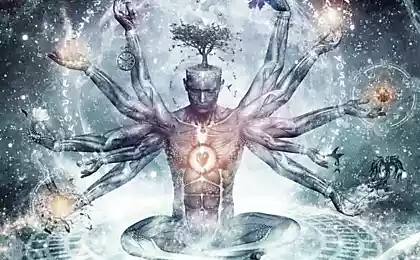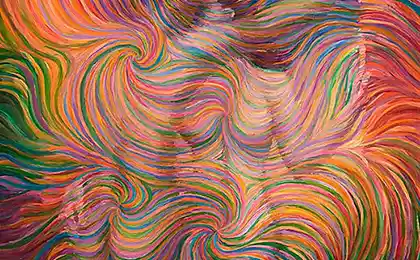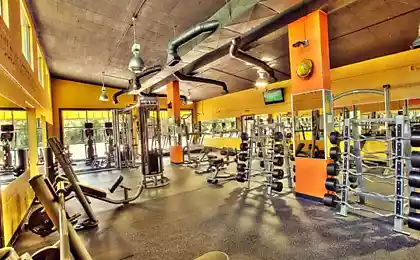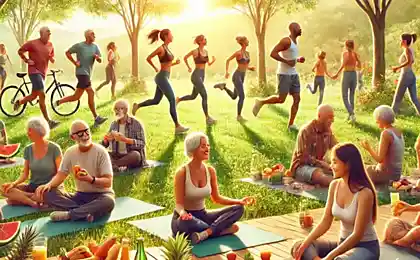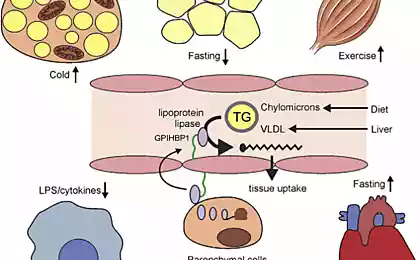189
How to maintain health and energy for years to come

“Health is not everything, but everything without health is nothing” – this quote, often attributed to great thinkers, perfectly conveys the essence: physical and mental endurance is the cornerstone of a long and fulfilling life. However, in this age of insane pace and information, we often forget about the basic principles of a healthy lifestyle, replacing them with chaotic eating, irregular activity and scant sleep time. But what seems to be the “normal” of today may turn into chronic diseases tomorrow.
Fortunately, studies by the World Health Organization and other reputable medical institutions say that genetics is only part of the equation, and a good half of our quality of life is shaped by behavior, habits and environment. In this article, we will look at how to achieve and retain physical and emotional energy, based on the principles of proper nutrition, regular physical activity, proper sleep, and the ability to manage stress. The material is intended for a wide adult audience that appreciates popular science, but without complex terms and narrow reference to dates, so that this information is relevant today and remains useful in the future.
Main part
1. A balanced diet is the cornerstone of health
It is often said, “We are what we eat.” And that's no exaggeration. The diet forms our energy fund, affects the immune system, endocrine balance and mental stability. However, it is important not only what we eat, but also when, how much and in what combinations.
- Protein, fat and carbohydrates: Macronutrients are inseparable from each other. For example, protein supports muscle tone, fats - hormonal regulation, and carbohydrates - energy. But aim for “quality” sources: low-fat meat, fish, nuts, whole grain products.
- Fiber and vitamins: vegetables and fruits provide the body with trace elements and stimulate healthy digestion. Nutritionists recommend 400-500 grams of vegetables and fruits a day, paying attention to diversity (green, orange, red).
- Sugar and salt control: Excessive consumption of sweets leads to insulin jumps, and excess salt increases the risks of hypertension. Check these levels by looking at the usual foods: semi-finished, canned, sugary drinks – often a hidden source of excess salt/sugar.
2. Regular physical activity: “Movement is life”
The human body is inherently adapted to movement. Historically, we've been in hunting, gathering, protecting mode; in today's world, we can spend 8 to 10 hours at a computer and only take a couple hundred steps to and from a car. Immobility, alas, has become the “new smoking.”
- Aerobic loads: From basic brisk walking to running, swimming, cycling - all these types support the cardiovascular system and lungs.
- Strength exercises: muscle training not only for beauty, but also for the prevention of sarcopenia (age-related decline in muscle mass), which can undermine energy in adulthood.
- Flexibility and coordination: Yoga, Pilates, stretching – so that the joints and ligaments remain elastic, and the risk of injury is reduced.

3. Healthy sleep: the main regulator of energy
Too often, we sacrifice sleep, believing that “we will have time to sleep later” or “sleep for the weak.” But science proves the opposite: chronic sleep deprivation leads to decreased cognitive function, increased risk of obesity, diabetes and cardiovascular problems. Sleep is the time when the brain “cleanses” its neural system, and if it is not enough, the ability to learn decreases, immunity falls.
- Optimum: 7–9 hours a day for adults, according to the Sleep Foundation.
- Sleep hygiene: dark and cool room, lack of smartphones and bright light before bedtime, restriction of caffeine and heavy food in the evening.
- Regularity: Try to lie down and get up at the same time to keep your body’s circadian rhythms running.
4. Managing stress and emotional resilience
Stress is one of the main causes of decreased energy and immunity. Constant stress hits the nervous system and hormonal background, affecting the quality of sleep and even nutrition (stress overeating or loss of appetite). However, there are techniques and habits that help to “tame” stress:
- Mindfulness (mindfulness): Take a few minutes a day to meditate or do simple breathing exercises to lower your cortisol levels.
- Prioritization: Don't try to control everything at once. Select 1-2 key tasks per day and avoid endless multitasking.
- Regular "pauses" in work: Short breaks for walking or stretching. It refreshes the brain and relieves mental fatigue.
5. Why we need a social and emotional aspect
Health is not only biology, but also a psychosocial component. Emotional connections with family, friends, and communities support our energy balance. People who have strong relationships are less likely to become depressed and maintain more stable immunity.
- Community participation: Volunteering, hobby clubs, and sports sections all reinforce a sense of belonging and reduce stress.
- Moderation on social media: Paradoxically, excessive exposure to virtual space can drain real energy. It is better to replace “scrolling” with real meetings or thoughtful communication online.

6. Regular medical examinations and prevention
Many “age” diseases develop gradually, and the person does not notice how the energy level decreases under the influence of an imperceptible malfunction in the body. Regular examinations, tests, visits to the doctor allow you to detect and correct problems in time, whether it is a violation of sugar levels, hormonal imbalance or early signs of cardiovascular pathologies.
- Key analyses: general blood test, cholesterol (LDL, HDL), sugar, thyroid hormones. After 40-45 years, you should monitor the indicators once a year.
- Blood pressure control: If you notice jumps or constant elevated values, do not ignore: hypertension is often asymptomatic, but affects the heart and blood vessels.
- Dental and bone health: Do not forget about dentistry, prevention of osteoporosis, especially with age.
7. Continuous learning and “flexibility of mind”
Intellectual activity is no less important for the conservation of vital energy. Our brain needs new tasks: learning a language, solving puzzles, reading analytical literature, mastering skills. Research shows that people who continue to learn and work mentally even after retirement tend to stay clear and positive longer.
- Try a new one. courses, hobbies that stimulate curiosity. Sometimes a change of activity is the key to spiritual uplift.
- Healthy skepticism: It helps to avoid falling into the trap of pseudoscientific theories. Expand your horizons to better understand the world and maintain consciousness.
Conclusion
Health and energy are two sides of the same coin, forming the foundation for a long, active and fulfilling life. Contrary to popular misconception, this is not a “gift of fate” and not just the result of good genetics. An important role is played by our habits, diet, emotional background, quality of sleep and the ability to maintain social ties.
To conserve energy for years to come, focus on several key aspects: a balanced diet with a focus on whole grains and vegetables, regular physical activity (at least 150 minutes of moderate exercise per week), proper sleep (7-8 hours), effective stress management, and the development of positive social and emotional connections. Do not forget about the need to periodically check the health of specialists: prevention and early detection of problems will eliminate serious consequences in the future.
And, of course, it is important to find a balance between work and leisure, planning time for hobbies, creativity and self-development. Your body and mind are a single system, and if you pay attention to all its components, the chances of maintaining health and vitality at any age increase significantly. Applying these principles, you can not only live to 80 or 90 years, but also feel the vitality and lightness, and therefore enjoy every day, realize dreams and be an example to others.
How Music Affects Productivity: From Mozart to Techno
The story of one discovery: how chance led to a scientific breakthrough

